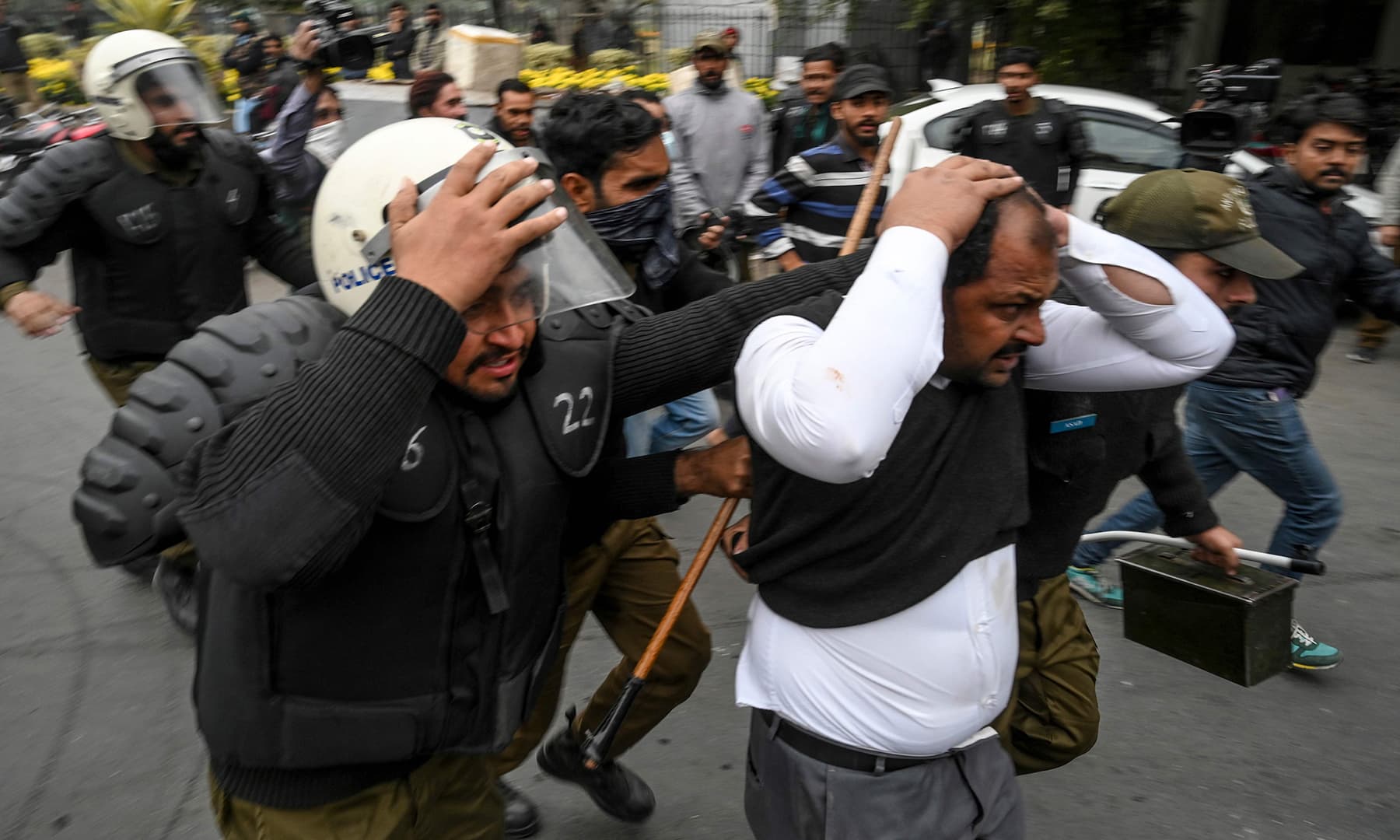
We could have perhaps forgiven the legal community had a rogue element within it been responsible for the attack on the Punjab Institute of Cardiology. Unfortunately, what we saw was the norm. That is how the majority of lawyers in this country are. In fact, what you saw was the reason why most people join this profession in our country in the first place. Not to serve some ideals about justice but to be part of a gang with clout. Some gangs have their leather jackets, we have our black coats.
It appears that in the aftermath of the “Lawyers Movement” the legal community became drunk on its own holiness. Allowing itself to believe that its sacrifices during the movement gave it a licence to get away with murder. That does seem to be exactly what the bar associations of the country expect from the government in the aftermath of the attack on the PIC. Rather than suspend and disbar each and every lawyer responsible for the attack, the Punjab Bar Council has announced an indefinite strike. Rather than celebrate the few ethical lawyers we have, the Islamabad Bar Association has suspended the licences of more than 60 lawyers who dared oppose their call for a strike.
To prevent such incidents from ever occurring again is not just a simple matter of punishing a few lawyers. It requires a root and stem reform. There is a broader issue that needs to be addressed, and there is a narrower issue.
Let me state the broader issue first: our society is not one governed by the rule of law instead it is governed by power.
Legal rules can be bent and broken in the presence of varying forms of power such as wealth, political influence, and social capital. Without at least one of these, the law does not protect you in Pakistan.
So in order to feel protected in our country, people need some sort of affiliation with a power group. A career in law provides this to many people. It is an easy route into a fraternity that has enormous influence.
For young people who do not have Pakistan’s preferred modes of power it is a tantalising prospect because the barriers to entry are so low. Getting a law degree in Pakistan is not difficult since there are plenty of degree mills out there that will give you one regardless of whether you’ve ever opened a law textbook or not. Our bar examination is known to be a colossal joke. The interview before you get a licence is an even bigger joke. You could get a licence in this country without knowing the difference between a plaintiff and a defendant.
Therefore, people pursue a career in law because it is an easy route to membership of a powerful group: the bar associations. They do so because our society respects power more than rules or codes of justice.
This explains why when this power is challenged — in any form — they get so provoked.
That is the broader societal issue. Now, there is a narrower issue to look at.
The most important reform that can be initiated within the legal community is to eliminate the regulatory capture that lawyers have over bar associations. These organisations are supposed to make sure that lawyers abide by legal ethics and standards. They are supposed to reprimand lawyers for misconduct. However, the lawyers who run bar associations thrive on a regulatory environment that has instilled in lawyers the mentality that they can do no wrong. It is always someone else at fault — doctors, judges, the police, the state. Not lawyers, never them.
People don’t contest bar elections to bring about legal reform or to stand for principles. They do so because holding such positions allows them to control the reins of the justice system. Once in power they get to decide when cases take place and who hears them. Their cases get preferential treatment and lower court judges are unwilling to rule against them. When their power is challenged, they call for strikes and get judges transferred. They are elected precisely to get lawyers out of situations like the PIC episode.
And those who are elected are hardly paragons of virtue. Time after time, candidates contesting bar elections are funded by people who belong to land grabbing mafias. This is a well-known fact in the legal profession. These candidates with questionable ethics win elections because of the vast sums of money that they control. They then pressurise and bully judges into granting them the relief they want.
In this environment, the unethical lawyer gets the top bid and it is impossible for someone with principles to enter the contest for elections without having equally huge sums of money.
All this means that not only do some of the most unethical people become office holders in our bar associations, but also, the system of zero accountability suits them. It is the lack of accountability that is the biggest incentive for them to contest elections in the first place.
The only way to change this is for the government and the judiciary to step in and demand that the legal profession be regulated by an independent body which is relatively free from the influence of lawyers. The body can be made up of professionals, academics, and politicians. The bar can still elect its representatives, but these representatives must not be given unchecked power.
I would apologise for the actions of the members of my community, but that apology would mean about as much to the families whose loved ones lost their lives in the attack as legal ethics do to most of the legal community — absolutely nothing.
Published in The Express Tribune, December 17th, 2019.
Like Opinion & Editorial on Facebook, follow @ETOpEd on Twitter to receive all updates on all our daily pieces.

1732441915-0/BeFunky-collage-(12)1732441915-0-165x106.webp)

1732438802-0/BeFunky-collage-(11)1732438802-0-165x106.webp)








COMMENTS
Comments are moderated and generally will be posted if they are on-topic and not abusive.
For more information, please see our Comments FAQ